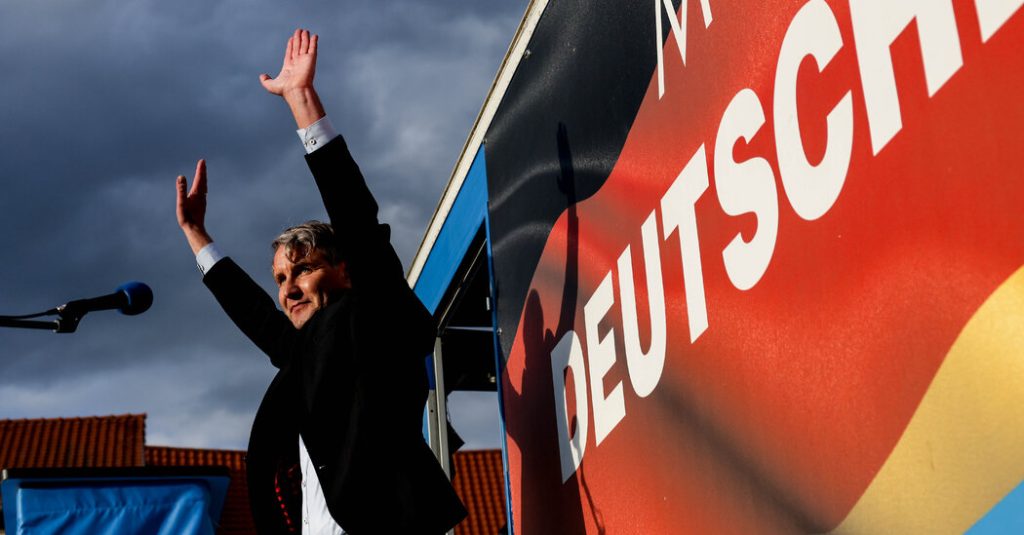Björn Höcke, a right-wing ideologue and leader of the Alternative for Germany party, has been pushing the boundaries of political speech in Germany for years. His use of Nazi slogans and symbols has landed him in multiple legal battles, including a recent trial for using the phrase “Everything for Germany.” Despite facing fines, trials, and legal challenges, Höcke and his party have continued to rise in popularity, with the AfD coming in second in the European Parliament elections.
Höcke’s supporters see him as a champion of free speech and defender of German cultural identity. They believe he is trying to reclaim unfairly maligned words and concepts and preserve their ideas of ethnic German culture. However, his opponents view him as a dangerous threat to German democracy. By reviving Nazi slogans and ideals, they argue that Höcke is attempting to make fascist ideas more acceptable in a society where such expressions are taboo and illegal.
Höcke’s political rise has reshaped the AfD into a more radical party that promotes ethnonationalist beliefs and questions the legitimacy of Germany’s post-World War II government. The party’s popularity has influenced the political discourse of the entire country, with mainstream politicians adopting some of the AfD’s anti-immigrant and anti-globalist rhetoric. Despite efforts to sideline him in the past, Höcke now holds significant influence within the party, reflecting the country’s broader shift to the right.
The state of Thuringia, where Höcke is based and represents, has historical significance as a place where the far-right gained power before the Nazis. The AfD is expected to gain a significant share of votes in the upcoming state election, raising concerns about the potential for Höcke to become prime minister. Analyses have also linked Höcke to a neo-Nazi writer using a pseudonym, leading to accusations of extremism within the party.
As Höcke continues to test the boundaries of acceptable speech, critics worry about the long-term implications. Despite facing legal challenges and accusations of fascist sympathies, he maintains his innocence and portrays himself as a victim of persecution. The courts play a crucial role in defining these boundaries and holding individuals like Höcke accountable for their actions. The ongoing struggle over recent German history and national identity underscores the challenges of combating extremism and preserving democratic values in a diverse and changing society.


